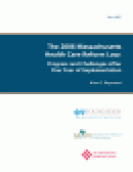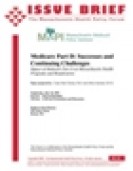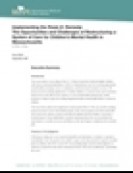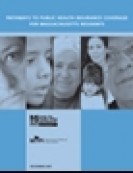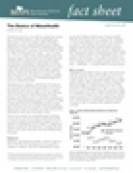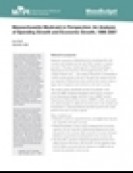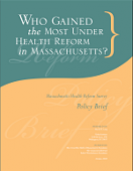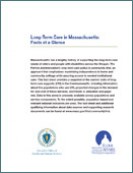The State Children's Health Insurance Program in Massachusetts: Achievements, Challenges, and Implications for Health Reform

The issue brief examines how SCHIP is part of the Commonwealth's universal coverage strategy; how SCHIP is funded in Massachusetts; and the funding shortfalls the program now faces. The brief also details how the SCHIP program and funding are integrated with MassHealth, and the implications of that connection for the upcoming negotiations to extend the MassHealth waiver.

